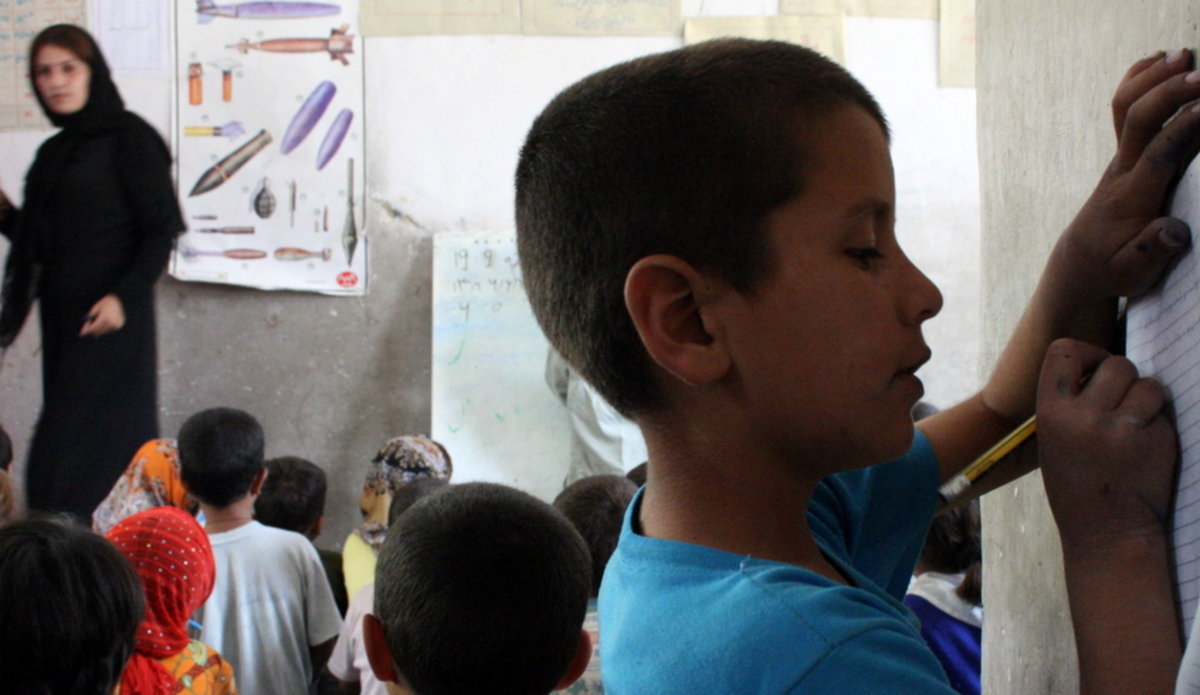Children’s rights must be protected for Afghanistan’s future, said panellists in UN-backed radio debate
JALALABAD - The critical importance of strengthening children’s rights was highlighted at an UN-backed radio debate broadcast out of the capital of Afghanistan’s eastern province of Nangarhar.
A four-member panel consisting of civil society representatives and community leaders discussed education, security and a range of other issues related to helping develop Afghan children into strong contributors to Afghanistan’s political, social and economic development.
Fazel Hadi Fazelzai, the province’s social affairs head, talked about how Afghan and UN officials have been working to raise awareness about children’s issues, in particular to put an end to child labour in Afghanistan’s eastern provinces, where young breadwinners remain common despite regulations banning child labour.
“Thousands of child labourers in the eastern provinces have no chance to study because they need to work hard to support their families, which are facing serious economic problems,” said Mr. Fazelzai, who pointed that the government and the international community have been conducting many information campaigns about children’s rights to help reduce the number of child labourers and increase the number of children attending school.
According to an Afghan Independent Human Rights Commission (AIHRC) report, up to 40 per cent of the country’s 15 million children are likely engaged in some sort of paid work. Many of these children are in Nangarhar and the other eastern provinces.
Nangarhar, which shares a porous border with Pakistan, has ongoing security challenges, with anti-government elements maintaining an active presence there.
Marwat Hamdard, a civil society activist and another debate panellist, called attention to the security situation in the province, and noted that the main causes of child labour, as a result of Nangarhar’s restive nature, are instability and economic hardship.
“Children are not enjoying their full rights in Nangarhar,” said Malek Hayat Khan, a community leader and another panellist. “Although the constitution gives the right to children to go to school, a remarkable number of them are involved in labour rather than study.”
Panellists stressed that more must be done to strengthen children’s rights, especially via the Child Protection Action Network, an initiative consisting of representatives from the AIHRC and the international community. The Network coordinates efforts to curb children’s rights violations and to protect and promote their rights.
The 40 minute radio programme was broadcast on Spinghar Radio Station in Nangarhar, with an estimated audience of 600,000 in Nangarhar and the neighbouring Kunar province.
UNAMA is mandated to support the Afghan Government and the people of Afghanistan as a political mission that provides good offices; promotes coherent development support by the international community; supports the process of peace and reconciliation; monitors and promotes human rights and the protection of civilians in armed conflict; promotes good governance; and encourages regional cooperation.
The UN mission also produces regular reports on children in armed conflict. Most recently, UNAMA released a report on Education and Healthcare at Risk. The report can be downloaded here: http://unama.unmissions.org/children-in-armed-conflict.
 UN
UN







